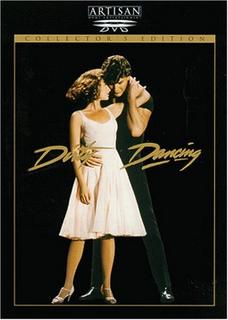Senior journal #3--One Scene With Extra Cheese, Please
 I'll proudly pronounce that no real cheese tastes better than Velveeta, the processed food substitute that to me, outcheeses the real thing. You could slop on that velvety yellow goo on anything, even broccoli, and you'll get my taste buds standing at attention. Put it on a Geno's cheese steak in South Philly, and well, my buds are marching while my jaws are munching.
I'll proudly pronounce that no real cheese tastes better than Velveeta, the processed food substitute that to me, outcheeses the real thing. You could slop on that velvety yellow goo on anything, even broccoli, and you'll get my taste buds standing at attention. Put it on a Geno's cheese steak in South Philly, and well, my buds are marching while my jaws are munching.My plebeian, if not bad, taste, does not begin and end with food. Quote Shakespeare if you want to impress the OTHER English teachers 'round here; I'm a sucker for a cheesy movie line. The cheesy movie line, like its Velveeta metaphorical counterpart, isn't REAL, but boy is it GOOOOOOD.
Come on. Admit it. When you're watching a movie for the umpteeth time, you patiently wait for your favorite cheesy bits of dialogue just so you can smile, or roll on the floor, pump your fist, or grow sad, or even emote a real, truly heartful "awwwww." It doesn't matter that the lines seem so unrealistic, so contrived, so Hollywood. They still work.
So you say you need some examples?
"You had me at hello." (Renee Zelwegger, said to Tom Cruise, in Jerry Maguire) How did this girl so easily forgive the caddy Tom Cruise? Maybe it was his equally cheese-worthy profession of love to her, "You complete me."
"No one puts Baby in the corner!" (Patrick Swayze to Baby's dad in Dirty Dancing) Wow, man. Chill. OK, we'll find a better seat for Baby. No, you're not going up on stage to dance, too. You're a wild man. Swayze continues to heap on the sauce: "I do the last dance every year, and I'm going to do it again this year. Except I'm going to do it my way." I'm writing this one in my journal to prove to myself that I can do ANYTHING.
"I'm the King of the World." (Leonardo DiC in The Titanic) Dream on, Leo. Tomorrow morning you'll still be down below with the rest of the hired help. Or going down with a sinking ship.
Even so-called "real" mobster movies aren't exempt. In The Godfather, for example, a chubby hit man by the name of Clemenza blows out someone's brains and instructs his gang: "Leave the gun, take the cannolis." This man has a cast iron heart and a stomach to match.
And my favorite, which some day I'll show you in class, goes like this: "I'm just a girl standing in front of a boy asking him to love her." Playing the role of a world famous movie star in Notting Hill, world famous movie star Julia Roberts (shoulder length red hair, baby blue cardigan sweater, OK I've seen this more than once) lays this line on a simple British bookshop owner, Hugh Grant, who then turns HER down. Double unrealistic.
Dialogue in movies, drama, and prose, for that matter, isn't always very realistic. That's the great illusion. No one we know would ever talk like this, but we also know that we want our characters to talk EXACTLY like this. Good dialogue may sometimes get a little cheesy, but at least it is NOT ordinary. To me, the trick is to write extraordinary, fascinating, or at least, interesting dialogue, and make it SEEM entirely natural for the situation. The pros, in any profession, make the difficult look easy: Ryan Howard hits a home run. Pavarotti hits the high notes.
When you read, watch drama, film, or TV, listen carefully to the dialogue and then think about its purpose within its scene. It creates character, conflict, dramatic tension, moves the plot along, or makes us laugh, cry, and get angry. It sounds real although we know it's completed fabricated. F. Scott Fitzgerald once said that all fiction is about character, but to me, it's dialogue that makes or breaks a good story.
Assignment: Tell me your favorite movie lines, their cinematic origins, their speakers, and why you love them so much in 25 blog lines or 200 words or more. Your writing can be heavy on the cheesy lines and light on the explanation or vice-versa, but I don't want mere lists.









